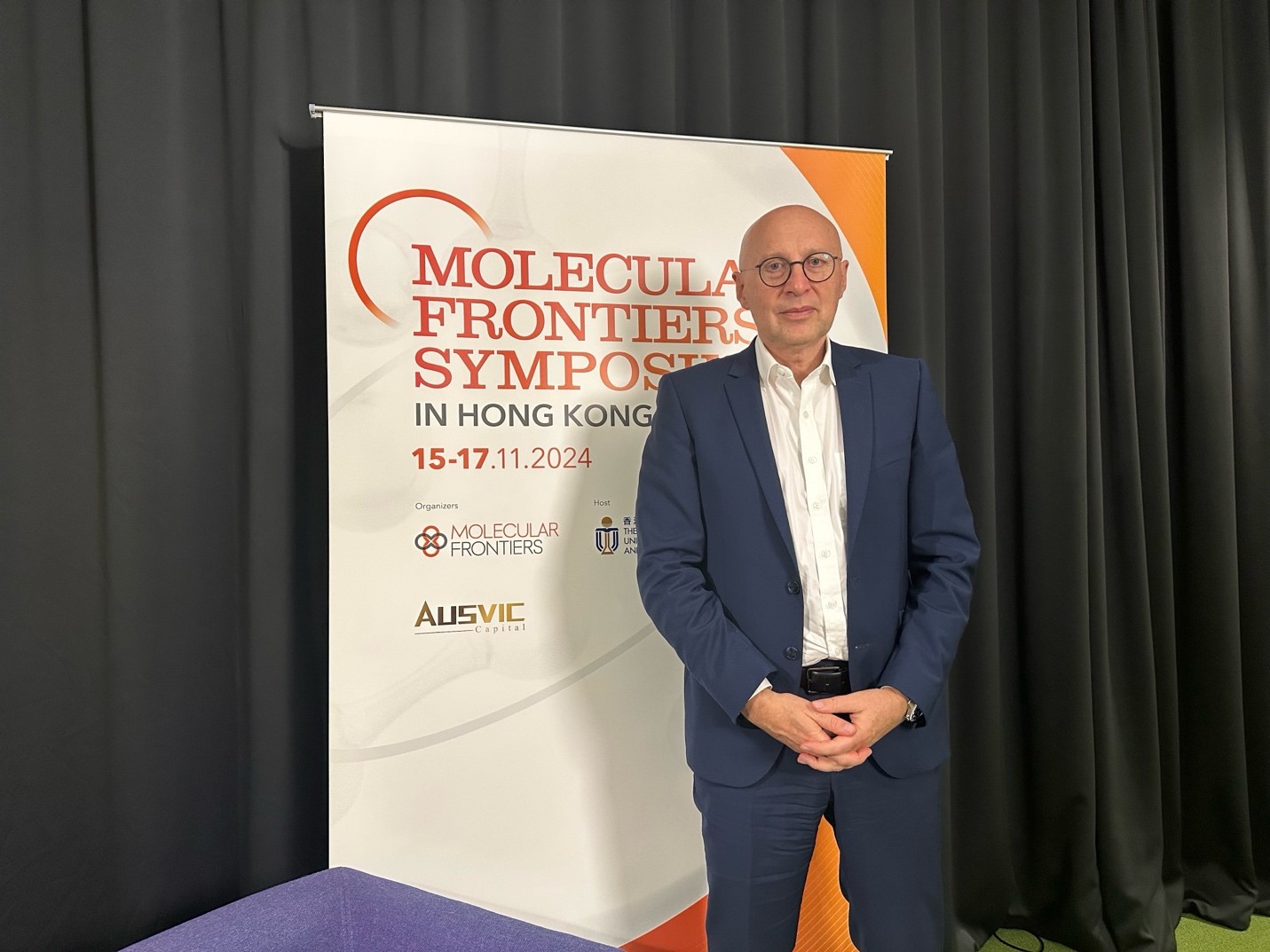
Nobel laureate Stefan Hell has lavished high praise on China’s growing scientific spending and its inherent make-a-difference spirit, saying they’ve propelled the country to the forefront of research.
In an exclusive interview with China Daily, the seasoned physicist says he expects the Hong Kong Special Administrative Region to play a greater role in the national research ecosystem, citing the city’s top-tier universities and ideal environment for cultivating talent.
Hell, a director of the Max Planck Institute for Multidisciplinary Sciences in Göttingen and the Max Planck Institute for Medical Research in Heidelberg, Germany, won the Nobel Prize for chemistry in 2014 along with Eric Betzig and William Moerner for bringing optical microscopy into the nano-dimension.
He joined three other Noble laureates -- biochemist Tim Hunt, biologist Gregory Winter and chemist Barry Sharpless -- as speakers at the Molecular Frontiers Symposium held at the Hong Kong University of Science and Technology from Friday to Sunday.
ALSO READ: Macao expat biophysicist receives nation’s top friendship award
Speaking on the sidelines of the conference, Hell says China’s increased investment in research and technology has pushed the country to the absolute forefront in the innovation race.
For the first time, China’s research and development budget reached 3.09 trillion yuan ($426.9 billion) in 2022 -- a threefold increase from 2012 -- making the country the world’s second-largest R&D spender.
He notes that China’s pursuit of scientific development has made notable progress in such fields as quantum optics, artificial intelligence and biotechnology in recent years.
Hell, rather than being a bystander, has cast a vote of confidence in the Chinese scientific community. In 2021, with his support, the University of Shanghai for Science and Technology became the first research institution in the Asia-Pacific region to receive MINFLUX -- a fluorescence microscope based on his Noble-winning technology.
Researchers at the university plan to use the microscope to discover the working principle of mouse brain neurons, which will be extremely beneficial to AI’s development.
“There’s an attitude in China towards becoming successful and making a difference in life,” says Hell, adding it’s always pleasant to work with Chinese scientists who are “curious, motivated and willing to do hard work”.
The laureate also speaks highly of Hong Kong, noting the city is “staying on a very good track economically, financially and scientifically”.
READ MORE: Summit: HK ideal launchpad for biotechnology firms
Supported by local universities with high global rankings, he believes the SAR will remain an ideal platform for science students. “I’ve no doubt that Hong Kong, just as the Chinese mainland, will play very important roles in the world in the future.”
In his view, global scientists should abandon their isolationist views, arguing that science requires collaborative endeavors. Competition is quite normal but, in the end, people must work together to address common challenges, such as climate change. “The more scientists there are in the world from different places, the more rapidly science will advance,” says Hell.
Born in Romania in 1962, Hell developed an interest in physics in his youth, prompting him to study physics at Germany’s University of Heidelberg. After receiving his doctorate in 1990, he worked for several laboratories and universities across Europe until he started a new career with the Max Planck Institute in 1997.


